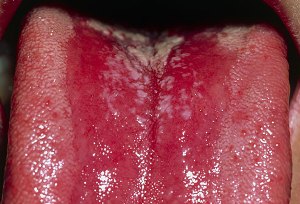Candida Overgrowth
I have to admit I am no expert on candida overgrowth , although I do a lot of research on vaginal health. For expert advice I turn to Dr Eric Bakker, who is a naturopathic physician from New Zealand.
Dr Bakker has been specializing in the treatment of various types of yeast infections for over twenty years.
I feel honored that Dr Eric Bakker has offered to write a guest post about chronic candida infection for Vaginal Health Guide Remedy.
Please welcome Dr Bakker as he shares with us his expertise on yeast infection, specifically his profound knowledge on candida overgrowth.
Guest writer : Dr Eric Bakker, ND
Understanding the Difference between a Vaginal Yeast Infection and Chronic Candida Overgrowth
What do more than 75% of the women of the world have in common? According to the Mayo clinic, they will each have a vaginal yeast infection at some point in their lives.
Vaginal yeast infections, or candida vaginitis, are a major complaint of women everywhere. They spend nearly a billion dollars a year on over the counter medications to treat the problem.
Vaginal yeast infection is one of the symptoms of overgrowth of the candida albicans fungus. So here’s the question: If you get a vaginal yeast infection, does that mean you also have chronic candida?
The answer is maybe.
Are the Vaginal Yeast Infections Recurring?
It is unlikely that one or two bouts of vaginal yeast infections over the course of years are a sign of candida overgrowth.
Women often experience these occasional infections after taking antibiotics, during pregnancy, or while taking birth control or hormone replacement therapy. Other irritants may also cause an infrequent case of vaginitis. The overpopulation of candida albicans can be a temporary situation due to extenuating circumstances.
If, however, you have recurring vaginal yeast infections, there is a possibility that you are experiencing an active candida growth that has been building within you for some time.
If you have four or more episodes of vaginal yeast infection within a single year, it is termed as recurring.
Other causes of recurring yeast infections are:-
- uncontrolled diabetes.
- reinfection from a sex partner.
- weakened immune systems.
- medications such as chemotherapy and steroids.
Are You Experiencing Other Chronic Candida Symptoms?
Chronic candida manifests itself in dozens of ways. It would be rare for someone with the condition to only experience a single symptom such as recurring vaginal yeast infections. Most sufferers have a number of symptoms.
Do you have more than one of these health problems?
|
|
Above are just some of the symptoms experienced by people who do have an ongoing problem with candida overgrowth. If you deal with any of these symptoms on a regular basis, you may have chronic candida.
Leaky Gut Syndrome-Common Cause Of Candida Overgrowth
 oral thrush
oral thrushIn fact candida infection or overgrowth begins in the gastrointestinal tract. The most noticeable candida symptoms or side-effects are vaginal yeast infection and oral thrush.
The intestinal tract is the route the body
uses to rid itself of waste and toxins. In a healthy person, the intestines
are sealed and the contents are tightly contained and safely transported out of
the body. When candida albicans overpopulate, they begin to fight each
other for space along the intestinal walls.
In order to maintain a firm grip while searching for food, the microscopic candida cells grow spear-like roots and imbed themselves into the delicate intestinal tissues. These roots permeate the intestinal walls, creating holes that allow partially digested food, toxins, and bacteria to leak out and enter the bloodstream, hence the name ‘leaky gut syndrome’.
The results? Digestion is impaired and nutrient absorption becomes more difficult. There are now foreign objects in the blood stream and the immune system starts a continuous, unwinnable battle to eradicate the nonstop stream of invaders, causing allergic reactions, inflammation, and other disagreeable symptoms.
The polluted blood travels throughout your body, stirring up various issues along the way. When left untreated, the candida continues to accelerate its growth and exasperate the problems.
Is There A Cure For Chronic Candida?
Chronic candida can usually be controlled with a regime that suppresses the growth of candida and encourages the development of beneficial intestinal flora. The goal is to create a balanced, harmonious internal ecosystem.
In order to achieve those results, you need to take away the foods that candida desires most. That includes sugars and yeasts. For example, sweets and breads. Yes, those are probably exactly the foods you’ve been craving, but they are the cause of your candida infection.
It is also important to boost the growth of helpful flora. The introduction of probiotics is one of the most recommended ways to accomplish that.
So no, just because you have a vaginal yeast infection it does not mean you have chronic candida overgrowth. But, if you are experiencing recurring vaginal yeast infections along with some of the symptoms listed above, there is the possibility that you do have chronic candida.
Don’t let this condition negatively affect your life. Fight back by changing your diet and regaining control of your health.
Back to top- Home
- Vaginal Infection
- Bacterial Vaginal Infection
- Candida Overgrowth
Like This Page?


Facebook Comments
Thanks for visiting. Have your say on what you just read? Leave a comment in the box below!